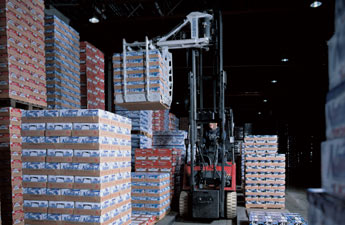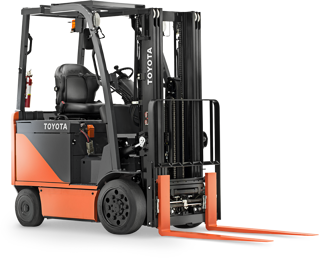
How often do I really need to perform planned maintenance on my forklift or manlift?
We hear this question often. The correct answer involves knowing about the individual operation, type and quantity of lifts and the environment in which the equipment operates on a daily basis.
Below is a list of questions to evaluate a fleet’s maintenance needs. Once maintenance frequency is determined,a scheduled maintenance plan helps avoid costly repairs and minimizes dreaded downtime.
- What is the age of the fleet?
Age plays a huge roll in determining how often units need to be looked at by a technician. As the unit gets up in hours, the standard 250-hour interval doesn't always apply. The older the lift the more attention it demands for maintenance. - 有多少联合国its are in the fleet?
A smaller fleet with fewer units makes the need greater - with no lifts to back-up downed units. Imagine only having one unit and it going down do to asimple maintenanceissue! - How many lifts have attachments?
These forklifts require more attention because attachments tax the transmission and cooling system of a lift. Because of this,lifts with attachmentshave a shorter service interval than regular forklifts. Most units with attachments are very specialized for a unique purpose, should that unit go down due to lack of maintenance would it slow or even stop your whole production? 对于大多数部分附件也很specialized and rarely in stock. Can your production afford that unit being down waiting on parts due to a simple lack of grease? So many times we have seen customers go down and have to work through expensive overnight freight and overtime labor bills simply due to a lack of planned maintenance.
对于大多数部分附件也很specialized and rarely in stock. Can your production afford that unit being down waiting on parts due to a simple lack of grease? So many times we have seen customers go down and have to work through expensive overnight freight and overtime labor bills simply due to a lack of planned maintenance. - What kind of environment are you working in?
Often forklifts operate in a hot and dirty, and sometimesextremely cold environments. All lifts are tools and perform a heavy job of lifting. Operational environment will play a part in determining the frequency of the maintenance in a big way.  Do you have Electric forklifts?
Do you have Electric forklifts?
Electric liftsare often overlooked. The thinking is, “it doesn't have an engine, it doesn't need service.” Keep in mind the cost of that battery. Watering the battery is the lifeblood of that unit.
The lift won't keep a charge?Look at the last time the battery was watered. Having atrained and certified technicianto maintain that battery is absolutely crucial. Just having an operator fill the battery can go bad in so many ways. If they overfill the battery, it overflows while charging - damaging the battery, the lift and anything near it. Not to mention the risk of injury to the operator should they get acid in their eyes or mouth.- Do you use your forklift seasonally?
The seasonal lift user relies heavily on the units for a short amount of time, but during that time the lift cannot go down. Planning and performing maintenance with 2000-hour and 4000-hour services during the off season ensures the least amount of down time when the lift is most needed.
Planned maintenance is key. Ensure your equipment is ready to perform the job it was purchased for! Knowing you’ve done the required maintenance on time will give the peace of mind that lift is ready to go and work safely and for years to come. Let the pros walk you through the appropriate frequency for your specific needs. Spending the small amount for the planned maintenance early on is sure to save headaches and high repair bills later!
TMHNC performs thousands of forklift PM’s every year and we know what it takes to optimize your Planned Maintenance program and would appreciate the opportunity to speak to you about your current program, or help you establish a customized Planned Maintenance program for your forklift fleet.
Contactyour local TMHNC Branch today. Or call 800-527-3746 and we will put you in contact with someone who can assist you right away.
Further Reading:









